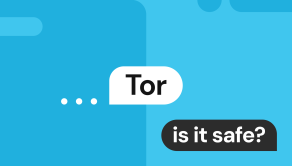Real stories: bank fraud proves online privacy can be a bottom-line issue
 Maria Shishkova
Digital Marketer & Privacy Expert at Onerep
Maria Shishkova
Digital Marketer & Privacy Expert at Onerep

Financial data is often thought to be our most secure online asset. Unfortunately, accidents and widely-available online information can undermine its integrity. This blog series features real stories from Onerep customers. Here, our user shares his experience of bank fraud, and the steps he took to regain control.
Each year, bank fraud – including identity theft, account takeover, loan fraud, wire transfer fraud, and check fraud – costs banks billions of dollars in losses and even more in updating their defense mechanisms. But the repercussions of bank fraud don’t just impact big banks. Consumer fraud complaints to The Federal Trade Commission reached record levels last year, surpassing 3.2 million in 2019.
These scams often start with identity theft made possible by the deluge of personal data available online. People-search sites make this process shockingly simple, giving bad actors a one-stop-shop for acquiring names, contact details, and other sensitive data that can be leveraged to gain access to peoples’ accounts or used as a starting point for more elaborate fraud attempts.
At Onerep, we remove this information from the internet to help our customers protect their personal information as a first step to preventing financial fraud from upending their lives.
After experiencing a bank fraud incident, Onerep customer Jake S. from Chicago, Illinois decided it was time to reclaim his online privacy. Here’s his story.
Jake’s story
I never thought that a routine trip to the store would turn out to be so costly.
While I’m typically pretty particular about how much information I carry on my person, on this day I lost my wallet that included my ID and Social Security card. I know that this information is sensitive, and I took quick action to protect myself from fraud.
Unfortunately, I wasn’t fast enough. The thief – I still don’t know anything about this person – contacted my bank and changed my contact details, including my phone number. Presumably, the bad actor looked me up on the internet and used a people-search site to fill in the missing personal details about me.
When my financial accounts were compromised, I felt extremely anxious about my online information. So much of my life is posted on the internet, and I didn’t know who was accessing this information and what they were doing with it.
Almost immediately, $15,000 was transferred from my general savings account to a third party, an offshore financial institution that allowed these criminals to use my money unimpeded. Additional money transferred raised red flags at the bank, but, when they called to verify the transactions, they reached the criminal who confirmed their authenticity.
Unfortunately, they didn’t stop there. They tapped my credit line and advanced a $10,000 check to a PO Box. It wasn’t until they attempted to initiate a wire transfer for an even more significant sum that would have overdrafted my accounts that I had time to notice the activity and take action. Before I knew what happened, this person had complete access to my account, allowing fund transfers and other activities that ultimately took weeks to unwind.
After this horrible experience, I went looking for ways to protect my personal information online. I found Onerep, which offered a cost-effective way to secure my personal information online by removing my data from the people-search sites.
I’m now more careful about the information I carry in my wallet and what I post about myself on social media, but I also feel more secure knowing that a simple search on Google or a query on a people-search site won’t compromise my personal privacy or financial well-being.
Regaining confidence in your information’s integrity
Bank fraud is frighteningly common, and it’s fueled by a lack of online privacy. Many online platforms, including information broker sites, make accessing people’s personal information just a few clicks away.
Onerep can help restore your online privacy by removing your profiles from people-search sites. Start with our five-day free trial to find out how many sites share your sensitive data and proceed to removal to protect yourself from online threats.
 Maria Shishkova
Digital Marketer & Privacy Expert at Onerep
Maria Shishkova
Digital Marketer & Privacy Expert at Onerep



